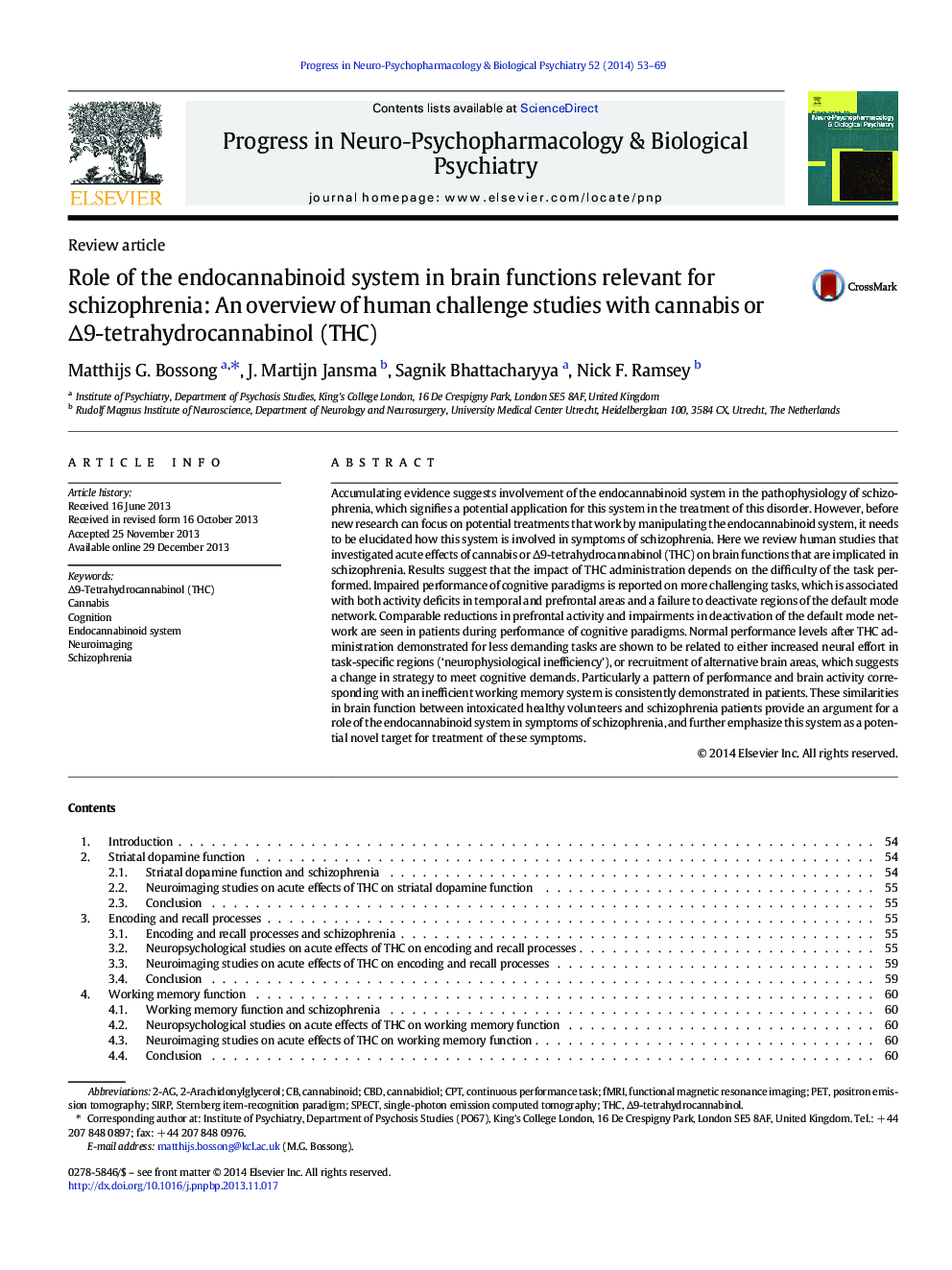| کد مقاله | کد نشریه | سال انتشار | مقاله انگلیسی | نسخه تمام متن |
|---|---|---|---|---|
| 2564750 | 1561042 | 2014 | 17 صفحه PDF | دانلود رایگان |

• Increasing evidence suggests a role of the endocannabinoid system in schizophrenia.
• Here we review THC challenge studies on brain functions affected in this disorder.
• Results suggest involvement of the endocannabinoid system in these brain functions.
• This provides indirect evidence for a role of this system in schizophrenia symptoms.
• Findings emphasize the endocannabinoid system as a novel target for treatment.
Accumulating evidence suggests involvement of the endocannabinoid system in the pathophysiology of schizophrenia, which signifies a potential application for this system in the treatment of this disorder. However, before new research can focus on potential treatments that work by manipulating the endocannabinoid system, it needs to be elucidated how this system is involved in symptoms of schizophrenia. Here we review human studies that investigated acute effects of cannabis or ∆9-tetrahydrocannabinol (THC) on brain functions that are implicated in schizophrenia. Results suggest that the impact of THC administration depends on the difficulty of the task performed. Impaired performance of cognitive paradigms is reported on more challenging tasks, which is associated with both activity deficits in temporal and prefrontal areas and a failure to deactivate regions of the default mode network. Comparable reductions in prefrontal activity and impairments in deactivation of the default mode network are seen in patients during performance of cognitive paradigms. Normal performance levels after THC administration demonstrated for less demanding tasks are shown to be related to either increased neural effort in task-specific regions (‘neurophysiological inefficiency’), or recruitment of alternative brain areas, which suggests a change in strategy to meet cognitive demands. Particularly a pattern of performance and brain activity corresponding with an inefficient working memory system is consistently demonstrated in patients. These similarities in brain function between intoxicated healthy volunteers and schizophrenia patients provide an argument for a role of the endocannabinoid system in symptoms of schizophrenia, and further emphasize this system as a potential novel target for treatment of these symptoms.
Journal: Progress in Neuro-Psychopharmacology and Biological Psychiatry - Volume 52, 3 July 2014, Pages 53–69